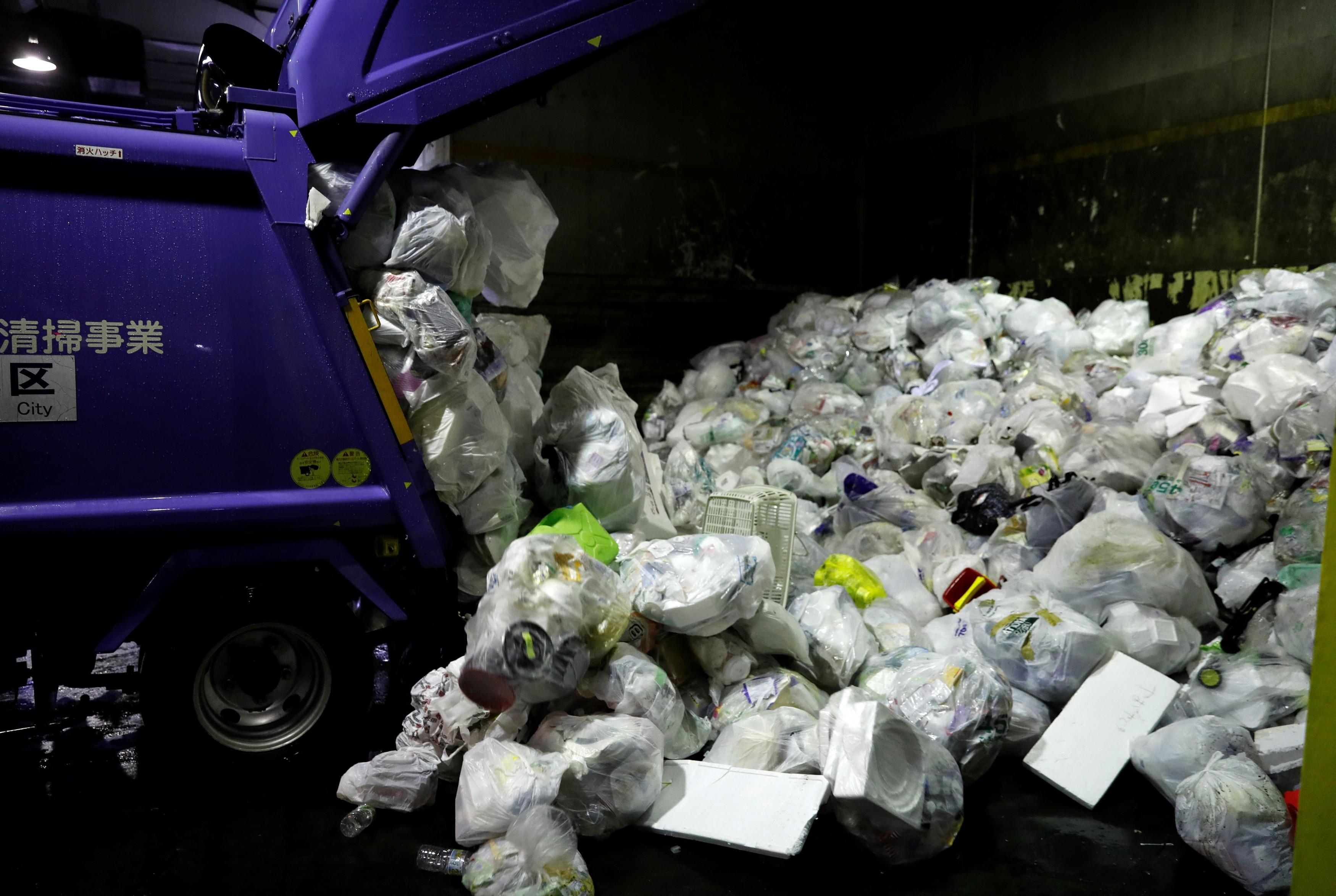UK start-up Polymateria Ltd has struck a deal with a 7-Eleven's supplier in Taiwan, South Plastic Industry Co., to use its innovative process to decompose plastic into a wax that is digested by nature.
President Chain Store Corp, which operates the 7-Eleven outlets, plans to reduce disposable plastic use to less than 20 percent of packaging by 2023.
Some 7-Eleven stores are now selling cheese-baked rice meals in Polymateria’s disposable packaging.
Polymateria has also inked a deal of up to US$100 million to license its technology to Formosa Plastics Corp, one of the world’s biggest petrochemical manufacturers.
Godrej Consumer Products Ltd in India will also start using Polymateria’s packaging later this year.
According to Polymateria CEO Niall Dunne, they are targetting the type of plastic that’s most likely to wind up in nature by using a solution that doesn’t need any composting technologies to biodegrade or capital expenditure.
Polymateria also has licensing agreements with plastics producers in Malaysia and the Philippines.
The deals are part of Polymateria's plan to solve the problem of plastic from snack wrappers, cups, and shopping bags that end up in oceans and landfills.
Dunne added that they are focused on Asia where a lot of the fugitive plastic is coming from and there aren’t substantial waste management systems in place.
Polymateria’s technology uses about a dozen kinds of chemicals, such as oils, rubbers, and desiccants, that are added to plastic during the manufacturing process.
The additives help break down plastic polymers and turn the plastic into a wax that is fully digested by natural bacteria and fungi.
The thinner packing materials infused with Polymateria's solution can decompose in as little as 226 days.
By comparison, it takes about 1,000 years for a plastic bag to degrade in landfills.
Still, some scientists are calling for reducing the use of plastics and recycling instead.
Independent scientific advisers to the European Commission released a report that concluded “biodegradable plastics aren’t a silver bullet,” while others raised concerns that biodegradable plastics could encourage littering.
Dunne said while he agrees with reducing, reusing, and recycling plastic, their solution addresses an immediate problem that is not going away.



 Swimming in the sweet spot: how marine animals save energy on long journeys
Swimming in the sweet spot: how marine animals save energy on long journeys  China Extends Gold Buying Streak as Reserves Surge Despite Volatile Prices
China Extends Gold Buying Streak as Reserves Surge Despite Volatile Prices  NASA and SpaceX Target Crew-11 Undocking From ISS Amid Medical Concern
NASA and SpaceX Target Crew-11 Undocking From ISS Amid Medical Concern  Thousands of satellites are due to burn up in the atmosphere every year – damaging the ozone layer and changing the climate
Thousands of satellites are due to burn up in the atmosphere every year – damaging the ozone layer and changing the climate  Neuralink Expands Brain Implant Trials with 12 Global Patients
Neuralink Expands Brain Implant Trials with 12 Global Patients  Trump Administration to Launch Autism Initiatives Targeting Acetaminophen Use and New Treatment Options
Trump Administration to Launch Autism Initiatives Targeting Acetaminophen Use and New Treatment Options  Ukraine minerals deal: the idea that natural resource extraction can build peace has been around for decades
Ukraine minerals deal: the idea that natural resource extraction can build peace has been around for decades  Asian Stocks Slip as Tech Rout Deepens, Japan Steadies Ahead of Election
Asian Stocks Slip as Tech Rout Deepens, Japan Steadies Ahead of Election  Fungi are among the planet’s most important organisms — yet they continue to be overlooked in conservation strategies
Fungi are among the planet’s most important organisms — yet they continue to be overlooked in conservation strategies  Singapore Budget 2026 Set for Fiscal Prudence as Growth Remains Resilient
Singapore Budget 2026 Set for Fiscal Prudence as Growth Remains Resilient  Blue Origin’s New Glenn Achieves Breakthrough Success With First NASA Mission
Blue Origin’s New Glenn Achieves Breakthrough Success With First NASA Mission  How is Antarctica melting, exactly? Crucial details are beginning to come into focus
How is Antarctica melting, exactly? Crucial details are beginning to come into focus  SpaceX Starship Test Flight Reaches New Heights but Ends in Setback
SpaceX Starship Test Flight Reaches New Heights but Ends in Setback  Trump Lifts 25% Tariff on Indian Goods in Strategic U.S.–India Trade and Energy Deal
Trump Lifts 25% Tariff on Indian Goods in Strategic U.S.–India Trade and Energy Deal 





























